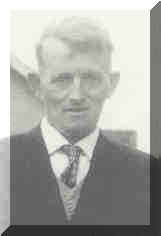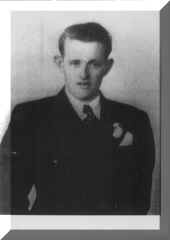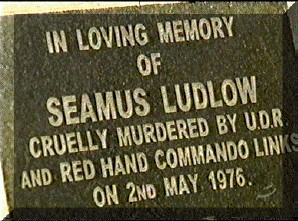The Murder of Seamus Ludlow in County Louth, May 1976. Towards a public inquiry?



The Murder of Seamus Ludlow in County Louth, May 1976. Towards a public inquiry?
|
|
Introduction to the murder of Seamus Ludlow and the official cover-up. Michael Cunningham investigation - 1978 The recent Campaign for Truth and Justice. Irish Victims Commission Report. Ludlow family's questions for the RUC (now the PSNI) Jim J. Kane's letter to the N I Human Rights Commission. Jim J. Kane's letter to the RUC Ludlow Family Letter to Bertie Ahern View messages from our original Guestbook Other Ludlow Family Sites.
|
The Irish
Daily Star, 23 July 2004:
Gardai
in murder case 'cover-up'
Family
claims Barron probe will reveal it
Exclusive
By
Mick Browne
The
family of a murdered man claimed last night that retired judge Henry
Barron's probe into the unsolved killing will reveal a garda cover-up.
Relatives
of 47-year-old Seamus Ludlow - found dead near the border in May 1976 - said
the report will show gardai were told of his killers' identities by the RUC
in 1979, but did not request their arrest.
Barron
probes allegations that evidence was suppressed
Gardai
are accused of a cover-up in '76 murder
Family
claims killer was a British agent
Exclusive
by
Mick Browne
The
family of a bachelor found dead near the border has claimed that a probe
into the unsolved killing will reveal a Garda cover-up.
And
the family has alleged to have been the victims of garda harassment since
the killing, which is being probed by retired judge Henry Barron.
47-year-old
Seamus Ludlow, a bachelor from Mountpleasant, Co. Louth, was found dead in
Culmore, near the Louth border on 2 May 1976.
The
murder was claimed by loyalist terror group Red Hand Commando (RHC), but
since his death, Seamus' family has been campaigning for a public inquiry.
Mr
Ludlow's family believes the man who shot Seamus was a British security
force agent.
And
they claim that elements within the Garda Siochana covered up the case to
help their counterparts across the border, who were engaged in the 'dirty
war' against the Provisional IRA.
Seamus
Ludlow was found dumped in a country lane not far from his home after being
shot three times at point blank range.
Jimmy
Sharkey, one of Seamus' nephews, spoke exclusively to The Irish Daily
Star this week.
He
said: "This was one of a string of murders along the border which have
been linked to British military intelligence and loyalist gangs, but for
which no one was ever quizzed.
"Barron
has told us that his probe may not be completed until the end of the year,
but said he would inform us of his progress.
Report
"But
he told us when we met he asked a Garda why he suppressed evidence, and
although he would not tell us the reason, it would be in his report."
The
family believes the report will show An Garda Siochana was told of the
gang's identities by the RUC in 1979, but failed to request their arrest.
The
family also says the report will show the gun used to shoot Seamus may have
been an official UDR service weapon used in the murder of a Protestant man a
month later in June 1976.
This
has been confirmed to the family in meetings recently with both Police
Ombudsman Nuala O'Loan and by Henry Barron, who at different times have
examined the case files.
One
man alleged to have been involved in the killing of Seamus was Paul Hosking
from Comber, Co Down
In
1998 in a number of newspaper interviews, hosking remorsefully claimed that
as a young man he spent May 2 1976 - the day Seamus was killed - drinking
with the other three in loyalist Comber, Co Down.
Hosking
claimed they then drove in an unnamed man's car to Dundalk, Co Louth to
abduct a Provisional IRA man, before snatching Ludlow instead, who was
hitching a lift home.
Hosking
said that as the car stopped he got out to go to the toilet, and heard
banging and saw an accomplice shooting Ludlow who was then bundled out and
dumped on a hedge.
Despite
Hosking's claims, the North's Director of Public Prosecutions failed to
recommend any charges.
Seamus'
nephew Jimmy is more confident of answers being given than at any time
in the 28 years since the murder.
He
said: "From the beginning, Gardai spread smears another family member
shot Seamus, and also tried to label him an informer, something we all hotly
contest.
"The
killing happened in this jurisdiction, so it was up to the gardai to request
that they be lifted. But, instead, they misled Seamus' brother Kevin on a
number of occasions.
"There
is the inquest into Seamus' killing, due to re-open next week.
"It
was unprecedented for us to get a second inquest, as the first one in 1976
was held without us being properly informed or present and no ballistics
evidence."
Jimmy
believes it will probably be opened and then halted, pending the handover of
a 1998 Garda file on the case, which the family claims the Gardai are still
withholding.
"We
never thought we would get any satisfaction in seeing any of the Garda
prosecuted, but we have proof now that the gardai suppressed evidence, so
hopefully it will lead to Barron calling for a public inquiry."
Gang
member confessed in 1998
In
1998, Paul Hosking told a newspaper he was one of the gang involved in the
killing of Seamus Ludlow.
Hosking
claimed in a Sunday Tribune interview that he, and three other men who
cannot be named for legal reasons, were the gang which killed Seamus Ludlow.
All
four members of the gang were then arrested in the North and questioned, but
no charges were pressed against any of them for Ludlow's murder.
One
of them was sentenced to life for his role in the bungled sectarian shooting
of a Protestant not long after Ludlow's murder - but the man served less
than half of the 'life' sentence.
And
after his 1998 arrest and questioning, another member of the gang, who now
lives in England, revealed in an interview to his local English paper why he
had been arrested.
In
the interview, the gang member also boasted that he had also been quizzed by
police over the October 1976 killing of the then Sinn Fein vice-president
Maire Drumm, who was shot by loyalists as she lay in her bed in the Mater
Hospital in north Belfast.
And
the gang member revealed to his interviewer that he had ties to all of the
major loyalist terror groups in the North, including the Red Hand Commando.
Barron
probing alleged cover-up
By Mick
Browne
The
Ludlow case is one of those the Government directed be investigated by
retired judge Henry Barron.
Mr
Barron is also probing the Dublin bombings of 1972-3, Dublin-Monaghan of
1974, and Kay's Tavern in Dundalk in 1975
Seamus
was abducted and murdered by a four-man 'death squad' as he made his way
home from a night in a pub in Dundalk, Co Louth, on Saturday 1 May 1976.
Identity
The
killing was claimed by the loyalist Red Hand Commando terror group, and for
years was thought to be a case of mistaken identity.
Jimmy
Sharkey says his family accepts the gang came to Dundalk to snatch an IRA
man, who has since died, but having failed to find him, they snatched
Seamus.
Released
But
despite the RUC knowing their identities within at least one year, the gang
was not questioned until one of those present, Paul Hosking, made a
statement in 1998, although they were released without charge.
it
was reported in 1998 that Hosking had originally confessed to an RUC Special
Branch officer about his role in 1976, but was told 'Forget it, it's
political'.
The Irish News, 20 May 2004: Coroner plans inquest despite Garda hold-up The Dundalk Democrat, 22 May 2004: A Quiet Anniversary The Dundalk Democrat, 29 May 2004: Ludlow inquest before the end of July The Irish Sunday Mirror, 13 June 2004, Ken Murray Our Man in the House column: Why the high failure rate? I
Homepage I I Top
I I Press
Coverage I I Barron
Inquiry I I Terms
of reference for Barron Inquiry I I Fresh
Inquest I I Celtic
League Support I I New
GuestMap Guest Book.
I Copyright © 2004 the Ludlow family. All rights reserved. Revised: July 24, 2004 .
|